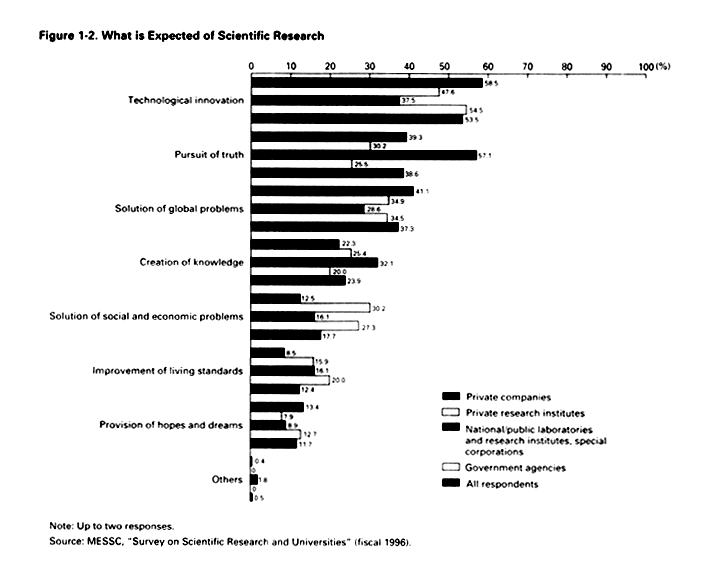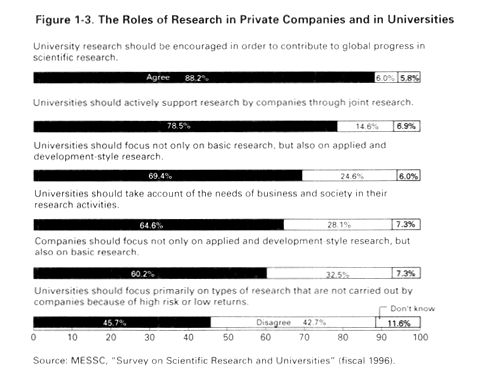| Home > Policy > White Paper, Notice, Announcement > White Paper > JAPANESE GOVERNMENT POLICES IN EDUCATION, SCIENCE, SPORTS AND CULTURE 1997 > Scientific Research Introduction 2 (2) | ||
Postwar Japan made a miraculous recovery from utter destruction. The spread and improvement of education and the qualitative and quantitative advancement of science and technology were key factors in that achievement. Needless to say, universities played an important role by making scientific research the foundation for developing highly trained human resources.
Thus far,, however. Japan has generally taken a "catch-up" approach to science and technology. Technological innovation has meant applying sophisticated engineering know-how to develop applications and products using basic and original technologies obtained from industrially advanced Western countries in exchange for the payment of royalties and other fees that were relatively low by today's standards.


The world is moving toward increased protection for intellectual property rights. Japan, which has pretty much finished catching up, now faces the major task of correcting its weakness in basic research and original technological development. Moreover, in addition to a trend toward fewer children, the Japanese population is aging more rapidly than that of any other industrially advanced nation, which means that despite women' s entering the labor market and the implementation of various employment and job training policies, there is a danger that Japan's ability to achieve sustained growth and development will be constrained by both the quality and quantity of its work force.
The discovery, development, and stable supply of resources, energy, and food are vital priorities for Japan, which is poorly endowed with natural resources. As a member of the international community, Japan needs to make a serious response to issues that could jeopardize the survival of humanity, such as global warming, other global environmental problems, and AIDS.
Japan exists in an environment that is changing dramatically. The key to solving our problems in a changing world is to concentrate the knowledge and wisdom of humankind on the basis of scientific research.
| Back to Top | MEXT HOME |